
ICAS Bulletin (online ISSN 2836-3418, print ISSN 2836-340X) is published every other week throughout the year at 1919 M St NW, Suite 310, Washington, DC 20036.
The online version of ICAS Bulletin can be found at chinaus-icas.org/bulletins/.
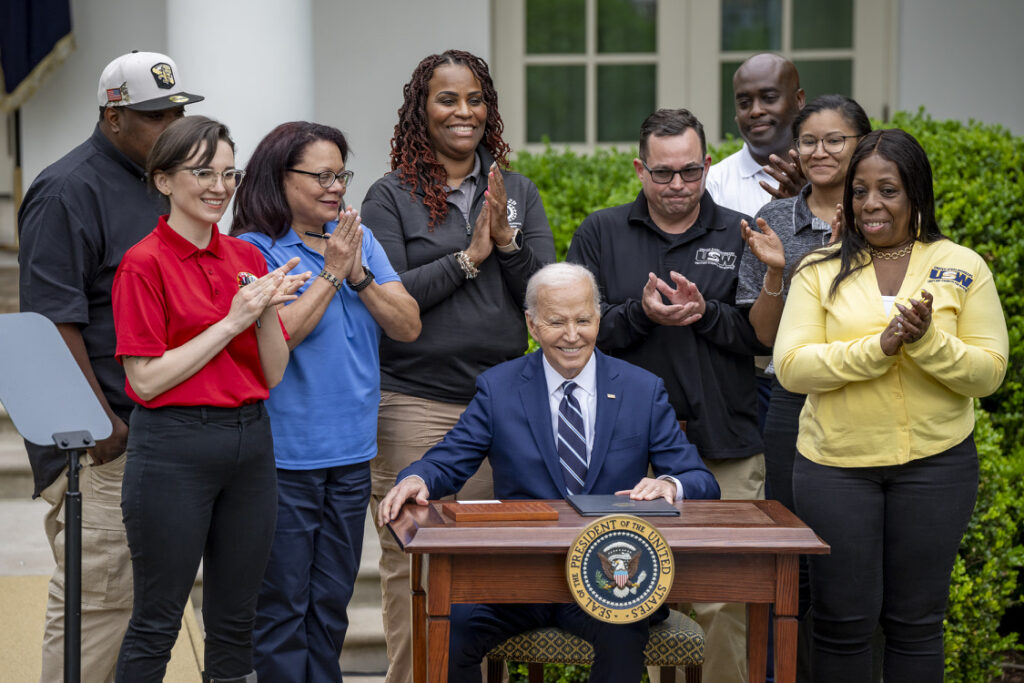
– On May 14, at the end of a regular four-year review of tariffs, President Joe Biden announced a significant increase in tariffs on Chinese electric vehicles (EVs), chips, and other products, including a 100% tariff on EVs. President Biden said this move, which impacts $18 billion worth of Chinese imports over the next two years, is designed to protest and boost domestic U.S. manufacturing while counteracting “cheating” trade practices such as overcapacity and subsidization.
– Several U.S. industry leaders condemned the higher, broad-based tariffs, calling them unstrategic during a time of high inflation and ultimately harmful to U.S. economic growth.
– One day before the tariffs were announced, speaking in a televised interview, Treasury Secretary Janet Yellen expressed her hope that China would not significantly retaliate against any potential U.S. tariffs on Chinese goods and explained that the U.S. must protect its emerging industries from unfair competition.
– One week after the tariffs were announced, Secretary Yellen made a public call to Europe to join the U.S. in pushing back against China’s excessive industrial policy. Yellen also said these changes are a counter against a threat to the global economy, not anti-China.
– A United Kingdom city official, commenting on the Biden administration’s tariffs, explained that distancing the UK economy from China’s is not a feasible option as engaging with strategic competitors like China is “crucial” to the UK’s economic future.
Associated News References:
“U.S. Seeks to Join Forces With Europe to Combat Excess Chinese Goods,” The New York Times, May 21 [Paywall]
“UK cannot afford to give ‘cold shoulder’ to China, says City minister,” The Guardian, May 20
“Biden sharply hikes US tariffs on billions in Chinese chips, cars,” Voice of America, May 14
“Import Groups Decry Higher U.S. Tariffs on China-Made Goods,” The Wall Street Journal, May 14 [Paywall]
“Yellen Hopes China Doesn’t Mount ‘Significant’ Trade Retaliation,” Bloomberg, May 13 [Paywall]
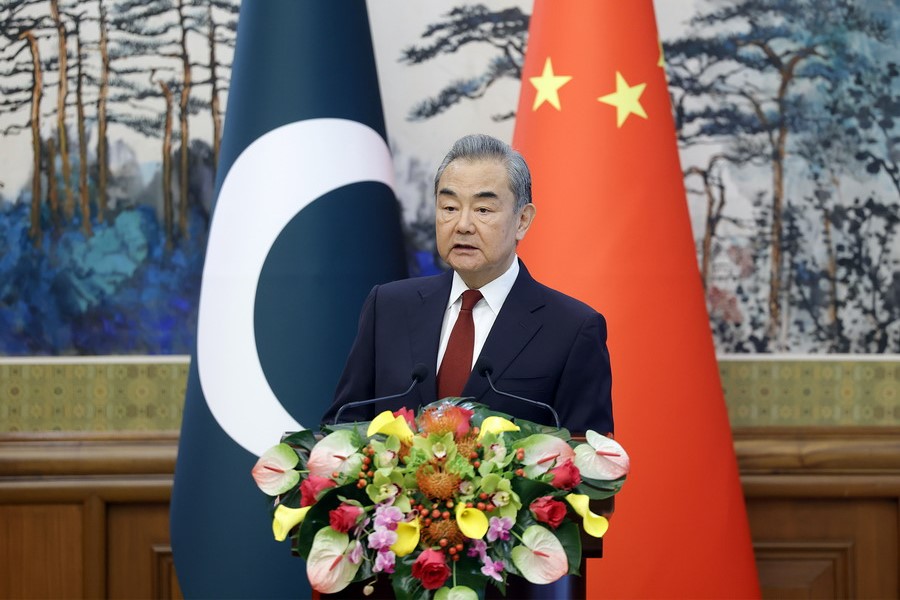
– In potential retaliation against Washington’s tariff hikes, China’s Ministry of Commerce announced the launch of a year-long anti-dumping probe into polyoxymethylene, a thermoplastic used in various industries and imported from the U.S., the European Union, Taiwan and Japan.
– China’s Ministry of Commerce also imposed import and export bans on some U.S. firms, including Boeing Defense, Space & Security, General Atomics Aeronautical Systems, and General Dynamics Land Systems. The new ban disallows the companies from making new investments in China and prohibits the senior executives from entering China, whose work permits will be revoked and not allowed to be renewed.
– Immediately after President Biden formally announced major tariffs on billions of Chinese goods, Beijing pushed back with the Ministry of Commerce directly stating this move “will seriously affect the atmosphere of bilateral cooperation.”
– Chinese Foreign Minister Wang Yi gave reporters unusually direct comments regarding the tariffs: “This is the most typical form of bullying in the world today!…some people in the U.S. have lost their sanity in order to safeguard their unilateral hegemony.” Wang Yi also called the increased tariffs a sign of weakness and lack of self-confidence, not of strength.
– Chinese executives in the auto industry are also openly expressing frustration over the quadrupled tariffs on Chinese EVs, with one directly calling ‘overcapacity’ a “fake concept” and accusing Washington of not knowing all of the facts.
Associated News References:
“China launches its own anti-dumping probe following Biden’s monster tariffs,” CNN, May 20
“China commerce ministry bans some US firms from import, export activities,” Reuters, May 19
“Beijing vows retaliation against Biden’s hikes of tariffs on Chinese imports,” Voice of America, May 15
“China says ‘bullying’ tariff hike shows some in US are ‘losing their minds,’” CNN, May 14
“Overcapacity is a ‘fake concept’, says the international head of a major Chinese carmaker: ‘They don’t know what is happening in my house’,” Yahoo!Finance, May 14
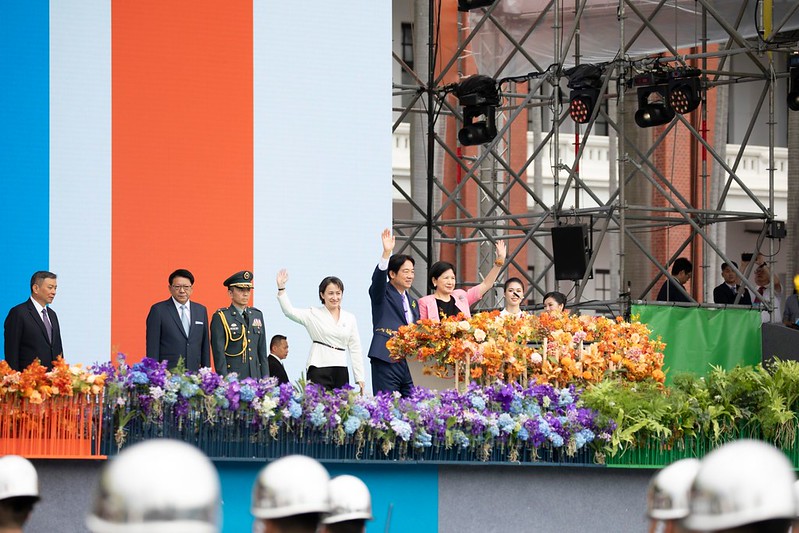
– According to two anonymous U.S. government officials, two semiconductor chipmakers—the Netherlands-based ASML and Taiwan-based TSMC—have the capacity to remotely disable certain chipmaking machines should China invade Taiwan. Spokespeople from these two companies and from the U.S. and Dutch governments either declined or did not respond to press requests for comment on this topic.
– China has frozen the Chinese assets of and imposed a ban on Mike Gallagher, a former U.S. lawmaker and Taiwan supporter, for his words and actions that “interfered in China’s internal affairs.” Gallagher visited Taiwanese leaders in Taipei in February to display strong bipartisan support for Taiwan, its then-President Tsai Ing-wen, and its then-incumbent President Lai Ching-te.
– Beijing criticized Secretary of State Antony Blinken after he delivered congratulations to Lai Ching-te on his inauguration that took place on May 18.
– According to new data from Taiwan’s Ministry of Economic Affairs, Taiwan’s investments in Mainland China have fallen to its lowest level in more than two decades and is now selling more to the U.S.
– The U.S. and Taiwan navies quietly conducted joint drills in the Western Pacific in April. The exercise focused on basic operations and tactical maneuvers to ensure readiness in times of Chinese military threats.
– China criticized the passage of the U.S. destroyer through the Taiwan Strait. China describes it as a politically motivated act since it happened less than two weeks before Taiwan’s new president takes office.
Associated News References:
“ASML and TSMC Can Disable Chip Machines If China Invades Taiwan,” Bloomberg, May 21 [Paywall]
“China sanctions ex-US lawmaker and supporter of Taiwan,” Reuters, May 21
“Taiwan is selling more to the US than China in major shift away from Beijing,” AP, May 17
“Exclusive: U.S. and Taiwan navies quietly held Pacific drills in April,” Reuters, May 14
“China criticizes US for ship’s passage through Taiwan Strait weeks before new leader takes office,” ABC News, May 8

– A new OECD report on the global digital economy highlights the United States’ competitive private investment in AI, China’s leading in AI research and Europe’s lagging in AI development.
– Following the U.S.-China dialogue in Geneva, experts from the U.S. and China held a ‘Track 2’ dialogue in Thailand on AI development. Debates largely focused on effective regulation for AI application in the military and each sides’ understanding of AI context, such as the general definition for AI, concept of AI test, and integration of generative AI in chemical or biological warfare.
– Microsoft is asking its employees in China who are responsible for machine learning and cloud computing related developments to relocate to other countries.
– A U.S. Senate working group on AI, led by Senate Majority Leader Chuck Schumer, proposed more federal investment in facilitating U.S. nondefense AI innovation such as reinforcing design and manufacture cutting-edged AI chips and address, local election campaigns, and “AI Grand Challenges” initatives.
– During the inaugural U.S.-China high-level dialogue on AI, held in Geneva on May 15, U.S. officials addressed their concern over China’s “misuse of AI.” Meanwhile, the Chinese representatives criticized the United States’ “restrictions and pressure” on its domestic AI industry.
– To safeguard its position in AI development, the U.S. government is considering new export controls on advanced AI models to Russia and China. The regulation includes developing a computing power threshold that was based on the amount of computing power the exporting AI model held.
– U.S. Secretary of Commerce Gina Raimondo announced that rules for restricting U.S. investments in three Chinese sectors—semiconductors and microelectronics, quantum information technologies and certain artificial intelligence systems—will be finalized by the end of 2024 to prevent U.S. funds and expertise from aiding China’s military advancements.
Associated News References:
“In AI funding and research, China and US outperform Europe,” Science Business, May 21 [Paywall]
“Experts link up in Thailand for US-China Track 2 dialogue on AI,” Defense Scoop, May 20
“Microsoft asks some China staff to relocate amid Sino-US tensions,” Reuters, May 16
“Senate Group Recommends Spending Tens of Billions of Dollars on AI,” The Wall Street Journal, May 15 [Paywall]
“In first AI dialogue, US cites ‘misuse’ of AI by China, Beijing protests Washington’s restrictions,” AP, May 15
“Exclusive: US eyes curbs on China’s access to AI software behind apps like ChatGPT,” Reuters, May 8 [Paywall]
“China outbound investment rule to be completed by end of year — US official,” Reuters, May 8
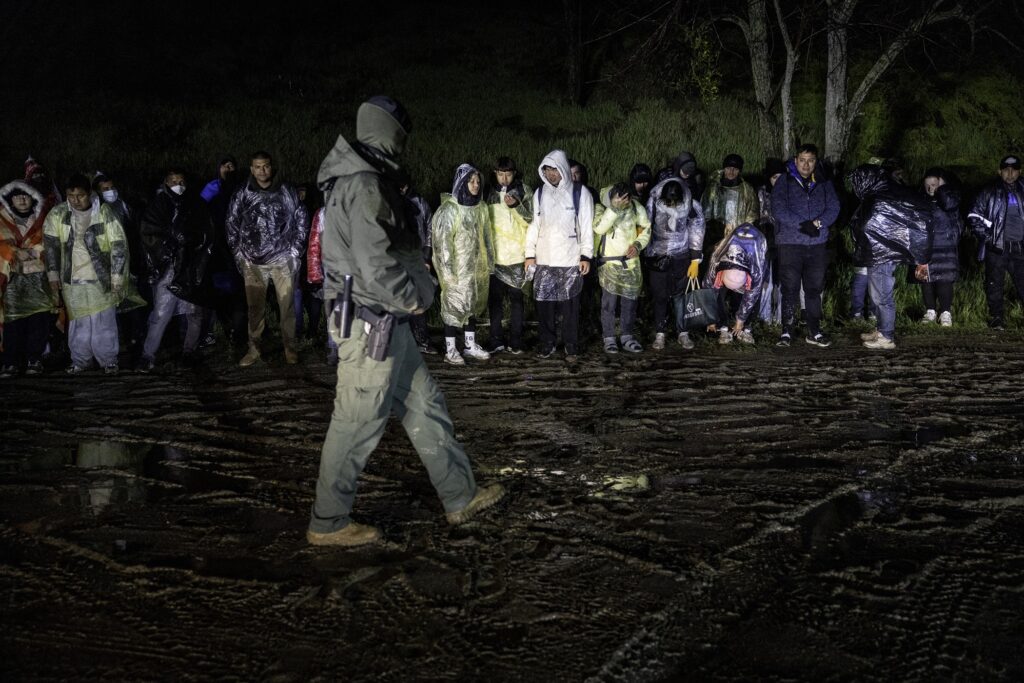
– Argentine news outlet Infobae published a report depicting how Chinese migrants are utilizing Ecuador as a starting point to allow them to eventually reach the U.S. to claim asylum. Ecuador is one of two South American countries that currently do not impose entry visa requirements for Chinese passport holders.
– CNN released an in-depth story on Chinese migrants and a legal service center in New York City, including statements on the increased rate of Chinese migration from migrants, current asylum seekers, China’s Ministry of Foreign Affairs, and an anonymous Chinese government official.
– Speaking during a campaign rally, former President Donald Trump suggested the surge in Chinese border crossings into the U.S. of “mostly men” of “military age” could be an attempt to “build a little army” in the U.S., comments that are leading observers to fear a resurgence of harassment towards the Asian community in the U.S.
– After 20 months, the U.S. and China have quietly resumed cooperation on the repatriation of Chinese migrants illegally stranded in the U.S. Almost ten times as many Chinese nationals were arrested in 2023 at the U.S. southern border compared to a year earlier.
Associated News References:
“Report: Chinese Citizens Using Ecuador – and Tiktok – to Reach U.S. Border,” Breitbart, May 20
“Caught between China and the US, asylum seekers live in limbo in New York City,” CNN, May 17
“Trump suggests Chinese migrants are in the US to build an ‘army.’ The migrants tell another story,” AP, May 14
“China resumes cooperating with US on illegal migration,” Voice of America, May 10

“A Chinese Phone Maker Did Something Apple Couldn’t: Make an EV,” The Wall Street Journal, May 21 [Paywall]
“Investigation finds BMW, Jaguar Land Rover, Volkswagen bought parts linked to forced labor in China,” The Hill, May 20
“U.S. Fears Undersea Cables Are Vulnerable to Espionage From Chinese Repair Ships,” The Wall Street Journal, May 19 [Paywall]
“US bars imports from 26 Chinese textile firms over suspected Uyghur forced labor,” Reuters, May 16
“China Sells Record Sum of US Debt Amid Signs of Diversification,” Bloomberg, May 16 [Paywall]
“Shein switches focus to London after New York IPO stalls,” Financial Times, May 16 [Paywall]
“US defense chief plans to meet with Chinese counterpart in Singapore, US official says,” Reuters, May 16
“Putin and Xi Vow to Step Up Fight to Counter US ‘Containment,’” Bloomberg, May 16 [Paywall]
“US House committee advances bill to restrict BGI, WuXi AppTec,” Reuters, May 15
“China ‘dwarfs’ US investments in EU neighbourhood countries,” Financial Times, May 15 [Paywall]
“U.S. orders Chinese-backed crypto miner to sell land near nuclear missile base,” CNBC, May 14
“Temu Cools on the U.S. After Shelling Out Billions,” The Wall Street Journal, May 13 [Paywall]
“Reports on China’s Bad Lending Data Disappear on Social Media,” Bloomberg, May 13 [Paywall]
“Former US Marine pilot arrested in Australia worked with Chinese hacker unknowingly, lawyer says,” CNN, May 12
“As Silicon Valley Pivots to Patriotic Capital, China Ties Linger,” The Wall Street Journal, May 12 [Paywall]
“US discussed ‘overcapacity’ in Chinese solar manufacturing, coal in climate talks,” Reuters, May 10
“US overtakes China as Germany’s top trading partner,” Reuters, May 9
L.E.A.D. Legislative Brief: Passive Decoupling Targets Shipping, Emerging Tech and Green Industries
By Yilun Zhang & Amanda Jin
May 13, 2024
The 118th Congress embraced its one-year countdown by continuing to push for laws that restructure policies in key areas of concerns. From January to April 2024, lawmakers introduced 63 bills and made significant advances on 25 bills on China and China-related issues. Among all, the bills’ primary focuses include addressing green products overcapacity and green energy self-reliance, continued tech and economic decoupling with China, shipping and port security, the competition on frontier technologies, and Taiwan.
Buzzword of the first quarter of 2024 will undoubtedly be “overcapacity.” Echoing the Biden administration’s call to address China’s alleged overcapacity in green product manufacturing, Congress introduced a significant number of bills that carried strong protectionist elements. Citing concerns on China’s dominance in green energy supply, lawmakers also advocated for strengthening U.S. green energy self-reliance. The efforts to strengthen self-reliance also coincided with the continuous push for tech and economic decoupling this quarter. An epitome of that combination is the Congress-led investigation on China-made cranes and the subsequent push for reforming and securing U.S. shipping industries and ports. Meanwhile, Congress aimed at further blocking Chinese access to sensitive U.S. data, emerging technologies, and capital, while channeling more funding to frontier technology research to better compete with Beijing in emerging industries and standard setting. On the foreign policy front, Taiwan continued to be the most frequently discussed geopolitical issue on the Capitol Hill. Congress pushed for more legislation during this quarter to demonstrate and strengthen U.S. commitment to Taiwan as the two sides of the Pacific brace for a new Taiwan administration this May.
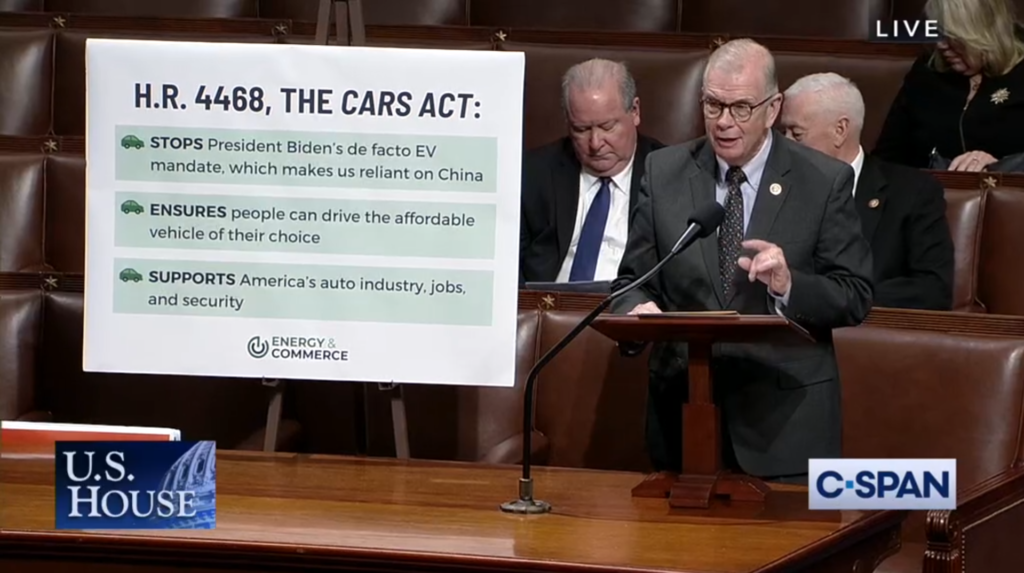
In May 2023, the team at ICAS launched the U.S.-China Legislative and Executive Actions Directory (L.E.A.D.) Project to track and summarize trending critical issues and developments on China, emanating from both the White House and Capitol Hill.
This is the fourth release of the Legislative Actions Directory and the first legislative release in 2024, covering U.S. legislative moves on China from January to April 2024.
Claims of Chinese Overcapacity Undermine America’s Own Strengths
By Yilun Zhang
May 20, 2024
The Biden administration’s major hike of tariffs on Chinese electric vehicles (EV) will undoubtedly trigger a new wave of tit-for-tat trade disputes with China, as Beijing vowed to take “all necessary measures” in response. Tensions with China over trade may be a useful election gimmick for the Biden administration to boost its popularity among blue-collar workers, critical in its race against former President Donald Trump. To protect the American auto industry from a potential collapse, addressing Chinese auto imports will be a compelling argument for the American autoworkers who endorsed the president earlier this year…
This article was originally published by Xinhua on May 18, 2024
Observer: China is a leading player in the global clean energy revolution
By Denis Simon
May 11, 2024
China has established significant competitive strengths in the fields of clean energy technologies, including electric vehicles (EVs), lithium batteries and photovoltaic (PV) products. These strengths have positioned China as a leading player in the global clean energy revolution, contributing in no small way to sustainable development worldwide. Given the extent of China’s carbon-based footprint, the ramifications of a significant transition to new, cleaner energy technologies can make a substantial difference in the fight against global climate change. China’s competitive advantages derive from a number of key factors…
This article was originally published on People’s Daily on May 11, 2024
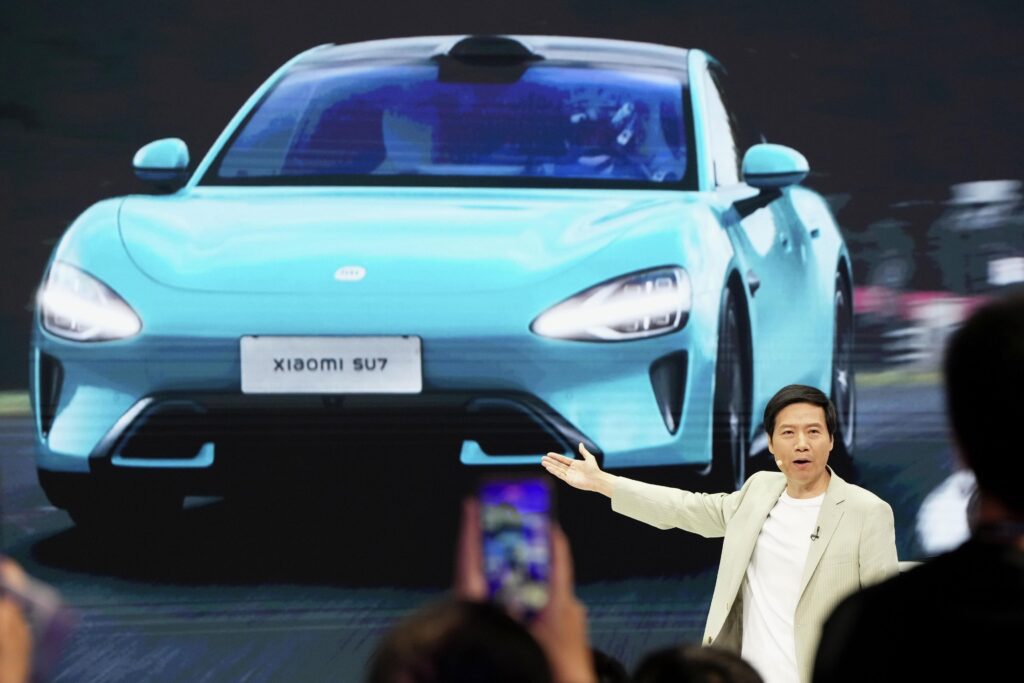
To Win the EV Race, Washington Must Abandon the Overcapacity Talks…and Do More
By Yilun Zhang
May 8, 2024
Recent talks on China’s green product overcapacity brought a new wave of tensions between Washington and Beijing…
The White House made it clear: China’s industrial overcapacity, including in the EV industry, is a result of Beijing’s overinvestment in factory capacity building which largely exceeds its domestic demand and becomes “too large for the rest of the world to absorb.”…
On Monday, May 13, 2024, Senior Fellow Sourabh Gupta was quoted by Politico on U.S.-China academic collaboration and sensitive technologies.
On Thursday, May 9, 2024, Research Associate Yilun Zhang was interviewed on GD Today about how opportunities and challenges coexist in China’s pursuit of new ‘quality productive forces.’
On Tuesday, May 7, 2024, Senior Fellow Sourabh Gupta was quoted by South China Morning Post on President Xi Jinping’s visit to the Belgrade Embassy bombing site while on a state visit in Serbia.
On Monday, May 6, 2024, the ICAS Trade ‘n Technology Program’s recent event on AI governance and cooperation was highlighted and summarized by China Daily.


The Institute for China-America Studies is an independent nonprofit, nonpartisan research organization dedicated to strengthening the understanding of U.S.-China relations through expert analysis and practical policy solutions.
1919 M St. NW Suite 310,
Washington, DC 20036
icas@chinaus-icas.org
(202) 968-0595
© 2025 INSTITUTE FOR CHINA-AMERICA STUDIES. ALL RIGHTS RESERVED.